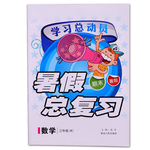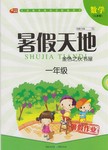题目内容
Most parents, I suppose, have had the experience of reading a bedtime story to their children. And they must have 11 how difficult it is to write a 12 children’s book. Either the author has aimed too 13 , so that the children can’t follow what is in his (or more often, her) story, 14 the story seems to be talking to the readers.
The best children’s books are 15 very difficult nor very simple, and satisfy both the 16 who hears the story and the adult who 17 it. Unfortunately, there are in fact few books like this, 18 the problem of finding the right bedtime story is not 19 to solve. This may be why many of the books regarded as 20 of children’s literature(文学) were in fact written for 21 . “Alice in wonderland” is perhaps the most obvious of this.
Children, left for themselves, often 22 the worst possible interest in literature. Just leave a child in a bookshop or a 23 and he will more willingly choose the books written in an imaginative way, or have a look at most children’s comics(连环画), full of the stories and jokes which are the objections of teachers and right-thinking parents.
Perhaps we parents should stop 24 to brainwash children into accepting our taste in literature. After all children and adults are so 25 that we parents should not expect that they will enjoy the same books. So I suppose we’ll just have to compromise(妥协) over the bedtime story.
A. hoped B. realized C. told D. said
A. short B. long C. bad D. good
A. easy B. short C. high D. difficult
A. and B. but C. or D. so
A. both B. neither C. either D. very
A. child B. father C. mother D. teacher.
A. hears B. buys C. understands D. reads
A. but B. however C. so D. because
A. hard B. easy C. enough D. fast
A. articles B. work C. arts D. works
A. grown-ups B. girls C. boys D. children
A. become B. show C. find D. add
A. school B. home C. office D. library
A. going B. liking C. trying D. preferring
A. same B. friendly C. different D. common
【小题1】B
【小题2】D
【小题3】C
【小题4】C
【小题5】B
【小题6】A
【小题7】D
【小题8】C
【小题9】B
【小题10】D
【小题11】A
【小题12】B
【小题13】D
【小题14】C
【小题15】C
解析:
略

 学期复习一本通学习总动员期末加暑假延边人民出版社系列答案
学期复习一本通学习总动员期末加暑假延边人民出版社系列答案 芒果教辅暑假天地重庆出版社系列答案
芒果教辅暑假天地重庆出版社系列答案阅读下面短文,撑握其大意,然后从36~55各题所给的四个选项(A、B、C和D),选出最佳选项。
I had my first job at the age of thirteen, when a friend of my mother’s who owned a bookshop _36 me for six hours a week to help her in the shop. I was very 37 to earn my own pocket money and my parents 38 interfered(干涉) with how I spent it, even when I was spending it 39 . They believed that by earning money, spending it, and learning from the 40 , I would become more mature(成熟) and 41 about how to handle work, relationships with others, and money.
Like many 42 parents, my parents also let me and my brothers do things over which they 43 a great deal. When I was sixteen, for example, after I finished high school and before I entered university, I wanted to spend the summer months traveling around 44 . My mother was against the idea of my traveling alone at such a young age, but my father felt that it would be a great 45 for me. In the end, my father won the 46 on the condition that I limited my traveling to France, my mother’s home, where I had many uncles, aunts and cousins 47 through the country who could 48 shelter and help if I need them.
Three years later, my younger brother decide to 49 a year off after his first year in university and travel through the United States and the Caribbean. Again my mother was very worried and not 50 to see my brother leave school, but my father encouraged him and my brother had a(n) 51 year working his way on trains and ships to 52 passage to different ports and cities, and discovering many fascinating places and people.
These kinds of experiences are probably rare(稀少的) for children in many countries but in the US they are fairly 53 . Most parents start 54 their children at a young age to do small things by themselves. By the time they have finished high school, many American kids have already had part-time jobs, traveled around the US or other countries on their own, have 55 the university they plan to attend and maybe even decided on their future career, and so on.
|
1. |
|
|
2. |
|
|
3. |
|
|
4. |
|
|
5. |
|
|
6. |
|
|
7. |
|
|
8. |
|
|
9. |
|
|
10. |
|
|
11. |
|
|
12. |
|
|
13. |
|
|
14. |
|
|
15. |
|
|
16. |
|
|
17. |
|
|
18. |
|
|
19. |
|
|
20. |
|